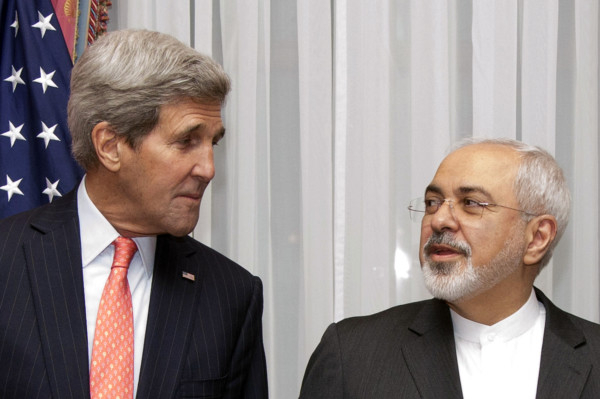
There is a revealing contradiction in the Obama administration’s pre-defence of a nuclear deal with Iran. The White House claims that Israeli and Republican critics have no alternative, other than war. But President Barack Obama recently reiterated that he is ready to “walk away” from a bad deal — and that the chances are no better than even that Iran will accept his terms.
So is war the only alternative for Obama? Evidently not. When Deputy National Security Adviser Ben Rhodes was recently asked how the US would prevent Iran from racing to build nuclear weapons after a pact expires, he said: “The fact of the matter is, the same type of options we have in place today to prevent Iran from getting a nuclear weapon will be available to the president of the United States in 10, 15 years.”
It follows that those options also will be available in 10 to 15 weeks, if necessary. Sanctions, sabotage and the threat of military action, combined with good intelligence and international inspections, have prevented Iran from building a weapon for the last dozen years. Even though its nuclear infrastructure has expanded, inspectors and western intelligence agencies have not detected a “military dimension” to the programme since 2003.
While it is possible that Iran would respond to a collapse in the talks by building bombs, that would not be in keeping with its previous practice. Nor would it be easy to carry off at a time when the economy is being hammered by plummeting oil revenue as well as sanctions. History suggests Tehran would make a show of installing more centrifuges while being careful not to cross any red lines drawn by Israel or the US.
The Obama administration will argue that its deal will provide more assurance that Iran will remain non-nuclear for the next decade, with less cost and risk to the US. Depending on the fine print of the accord, that may be true. But this, then, becomes a discussion not of war or peace, but of risks and trade-offs. An Iran constrained by a deal would be unconstrained by economic sanctions; inspections would be more rigorous, but a determination that Iran was cheating might require the concurrence of Russia, China and the United Nations Security Council.
The most important difference between deal and no-deal is the one that Obama has tried to obscure. That is the kind of relationship the US will have with Iran in the coming years and what US strategy will be for restoring order in a shattered, terrorist-infested Middle East. In a new paper, Martin Indyk of the Brookings Institution, a former Obama Mideast envoy, argues, as I have, that the US must choose between forging a new regional order with or against Iran. That choice, in turn, depends on the nuclear deal. “Without an agreement, it is impossible to imagine cooperation with Iran on regional issues,” writes Indyk. “With an agreement, collaboration ... becomes possible.”
The potential for such collaboration is deeply alarming to Israel, Saudi Arabia and Iran’s other Middle Eastern enemies, for whom its pursuit of nuclear capability is a subset of its campaign to become the region’s hegemon. Consequently, Obama has downplayed this aspect of the diplomacy in recent weeks. Secretary of State John Kerry was even dispatched to Saudia Arabia to declare that “we are not seeking a grand bargain”.
Nevertheless, the geopolitical ramifications of a deal are inescapable. Without it, Iran will unambiguously remain a hostile power to be contained. With it, the Obama administration will likely seek understandings with Iran on the future of Iraq and Syria — and any action against the Islamic republic will have to be weighed against its potential to blow up the accord. Thus, much depends on the hope that the nuclear pact “could lead to a more moderated [Iranian] policy that would be good for the United States, for Israel, and for the whole region”, as Rhodes put it.
Indyk bluntly argues that “it is fanciful to imagine that the United States could convince Iran to shift from the region’s most threatening revisionist power and become instead a partner in establishing a new order.” He favours a US strategy of rebuilding stability with its traditional allies. That course would be natural if the talks break down, but could it be balanced with a nuclear accord? Perhaps. Indyk proposes “providing a nuclear deterrent umbrella to Israel and Saudi Arabia”.
The point is that Obama’s negotiations with Iran are not just about whether it will obtain a nuclear weapon. They are about the future of the Middle East. Notwithstanding the White House spin, the outcome is unlikely to lead to war in the near future. But it may determine who wins the long-term contest for influence between the Mediterranean and the Arabian Gulf.
— Washington Post









